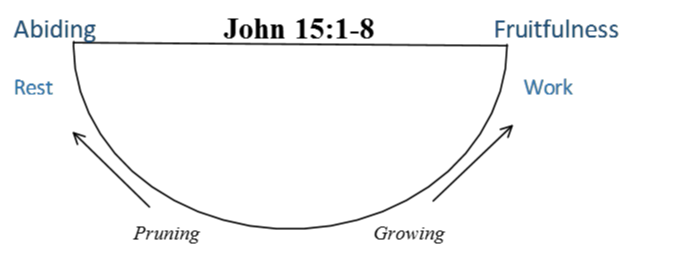Bobby Harrington and Josh Patrick are big on intentionality as a necessary feature for discipleship. As many a discipleship guru has said: disciples are not made accidentally. We must be AFTeR individuals that the Lord would have for us to invest in as they come to and grow in faith. They suggest Matthew 28:19-21 and Deuteronomy 6:4-9 as key texts highlighting the Lord’s intentionality in commissioning us to disciple others, raise up new generations, and make the faith known. Harrington and Patrick offer 5 guidelines for intentionality.
- You need a plan
The essence of this idea is that people need practical steps to follow as they seek to disciple others. We must know in advance where we want to take people spiritually, and how to get there generally. Pray about each of your group members and where the Holy Spirit might be moving them over the next few months. It what ways, out of the ordinary, might you become an instrument in that movement?
- You need tools
Tools are those mediums by which you convey your discipleship. The 7 volume Foundation series produced by Brentwood Baptist Discipleship is a great guide to core values for the Christian life. Ongoing training and other resources that you might request are our pleasure to provide to you. And of course, grounding all of what we do, is the Scripture.
- You need to be a role model
Lecturing or facilitation during group time is only one facet of discipleship. We must also demonstrate how the faith is to be lived. Now, this does not mean that we have to “get it perfect,” rather it means that we, as disciplers, must make our lives accessible and vulnerable to those we lead. They must see how we live the faith. Invite some group members into your home, let them see the messiness of your house, let them see you discipline your children, let them see you engage your neighbors. Find those select individuals from your group that the Lord has put on your heart and show them what the faith looks like. Don’t strive for perfection or else you may paint a false picture; instead, strive for authenticity. You will be stunned how those group members reproduce for others what you provide for them.
- You need to be discerning
Harrington and Patrick suggest that discipleship moves to the lowest common denominator, so you must set the agenda and the vision, constantly pulling people towards it. You must see people for where they are and where the Holy Spirit is moving them rather than what you think they could possibly become. Jesus pulled 12 particular disciples out of the multitudes that were following Him. He then focused heavily on 3 out of those 12. Why should we be any different?
- Intentionality is the key to multiplication and reaching people
Intentionality is an ongoing, willful choice. We must not treat our lives and encounters like accidents or coincidences. We must always be looking for places to explain, debrief, and model the Christ-centered life for those we engage.
Our authors offer us 4 guidelines.
- Learn an effective discipleship model from other disciple makers.
- Pray about how you might disciple those who you discern are AFTeR.
- Develop a meeting schedule, study routine, and relationship growth.
- Determine that you will open your life to them, warts and all.[i]
[i]Bobby Harrington and Josh Patrick, The Disciple Maker’s Handbook (Grand Rapids, MI: Zondervan, 2017), 112.
